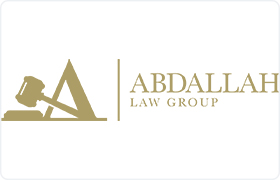Kyburz Real Estate Other Lawyer, California
Sponsored Law Firm
-
 x
x

Click For More Info:
-
Abdallah Law Group, P.C.
555 Capitol Mall Suite 766 Sacramento, CA 95814» view mapReal Estate Law #1 Sacramento Law Office
Abdallah Law Group is ready to fight for our clients. We provide comprehensive, individualized and affordable legal representation.
800-698-5801
Includes: Commercial Leasing, Commercial Real Estate, Condominiums, Conveyancing, Housing & Urban Development, Premises Liability, Residential Real Estate, Title Insurance
Robert Edward Jeppson
Commercial Real Estate, Litigation, Trusts, Business
Status: In Good Standing Licensed: 11 Years
Andrea R. Garcia
Commercial Real Estate, Estate Planning, Employment, Contract
Status: In Good Standing
 Mitchell Abdallah Sacramento, CA
Mitchell Abdallah Sacramento, CA
